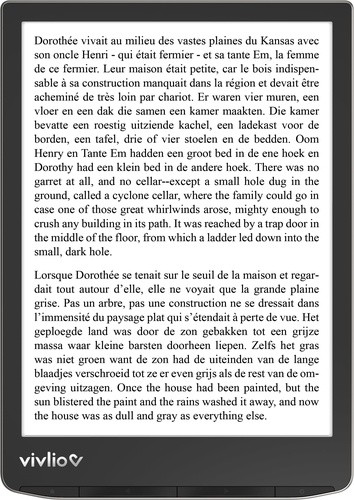En cours de chargement...
Insect Transgenesis. Methods And Applications
115,90 €
Neuf
Expédié sous 6 à 12 jours
Livré chez vous entre le 23 avril et le 30 avril
En librairie
Résumé
Imagine scientists controlling the transmission of certain diseases through the genetic modification of mosquitoes, eradicating harmful insects without the use of pesticides, or increasing the fertility of insects that eat harmful arthropods or plant pathogens. These are Just a few of the real-world applications of insect transgenesis that offer substantial benefits to humankind - whether for improving agricultural productivity or reducing the spread of insect-vectored diseases.
Insect Transgenesis: Methods and Applications is the first publication to describe in a comprehensive manner the various methodologies available, possible applications, and the risk assessment and regulatory issues involved in this fascinating area of research.
FEATURES
• Addresses recent successes in insect transgenesis so other researchers may utilize this information in their work with insects
• Presents current methodologies for insect transgenesis with a focus on the practical and theoretical aspects of gene transfer methods
• Considers the regulatory concerns and requirements for the release of transgenic insects
• Offers detailed color photos of insect markers including pigmented eves and green fluorescent protein expression in selected insects
• Provides dozens of useful tables and illustrations
Sommaire
- Gene targeting
- Transgenic selection
- Viral vectors
- Transposable element vectors
- Symbiont vectors
- Strategies, risk assessment, and regulation.
Caractéristiques
-
Date de parution27/09/2000
-
Editeur
-
ISBN0-8493-2028-3
-
EAN9780849320286
-
PrésentationRelié
-
Nb. de pages397 pages
-
Poids0.95 Kg
-
Dimensions18,6 cm × 26,2 cm × 2,9 cm
Avis libraires et clients
Avis audio
Écoutez ce qu'en disent nos libraires !
À propos des auteurs
Alfred M. Handler, Ph.D., is a Research Geneticist at the USDA, ARS Center for Medical, Agricultural and Veterinary Entomology in Gainesville, Florida.
Dr. Handler received his B.S. in biology from the State University of New York at Stony Brook in 1972, and his Ph.D. in biology (developmental genetics) from the University of Oregon in 1977. He held a postdoctoral fellowship in genetics at the Division of Biology, California Institute of Technology, Pasadena, from 1977 to 1979, and then joined die Developmental Biology Center at the University of California, Irvine as a research biologist from 1979 to 1985. During this time he was a visiting research associate at the Zoological Institute, University of Zürich, Switzerland and the Technische Hochschule, Darmstadt, Germany. In 1985 he joined the Agricultural Research Service in Gainesville, Florida, and in 1995 he was a visiting scientist at the Laboratory of Comparative Pathology, University of Montpellier II, France.
Dr. Handler is the U.S. scientific coordinator for a cooperative scientific program between the USDA-ARS and the French Centre National Recherche Scientifiques (CNRS) on "Transgenesis of Invertebrate Organisms of Economic and Medical Importance." As part of this role he bas served as conference organizer for the "International Workshops on Transgenesis of Invertebrate Organisms." Dr. Handler bas served as a consultant and expert panel member for several international organizations in the field of insect genetics and transgenesis.
Dr. Handler's research at the USDA-ARS bas centered on the use of transgenic insects for biological control programs. Most of his efforts have focused on the development of efficient gene transfer vector and marker systems.
Anthony A. James, Ph.D., is Professor of Molecular Biology and Biochemistry at the University of California, Irvine (UCI).
Dr. James received his B.S. in biology from UCI in 1973, and his Ph.D. in developmental biology from UCI in 1979. He held postdoctoral positions in the Department of Biological Chemistry, Harvard Medical School, and the Department of Biology, Brandeis University, before joining the faculty of the Department of Tropical Public Health at the Harvard School of Public Health in 1985. Dr. James returned to his alma mater in 1989, where he has remained.
Dr. James was a principal investigator with the Network on the Biology of Parasite Vectors funded by die John D. and Catherine T. MacArthur Foundation and was a recipient of die Molecular Parasitology Award from die Burroughs-Wellcome Fund. He is a fellow of the American Association for the Advancement of Science and the Royal Entomological Society of London. He is a founding editor of Insect Molecular Biology, and is on the editorial board of Experimental Parasitology.
Dr. James' areas of interest include vector-parasite interactions, mosquito molecular biology, and other problems in insect developmental biology. His current work focuses on using genetic and molecular genetic tools to interrupt parasite transmission by mosquitoes.





